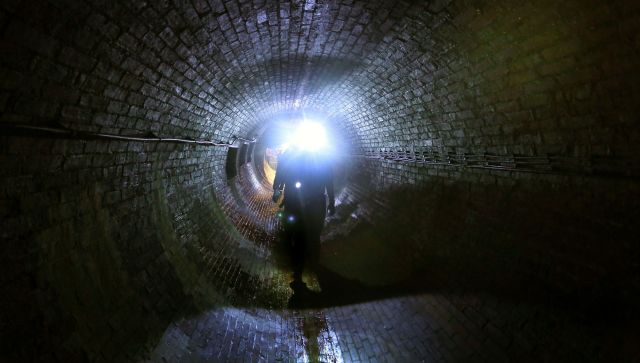Gareth Fuller/PA Archive/PA Images

The 1990s drew a great deal of inspiration from the 1960s. In music, fashion and even politics, there was a reaction against the hard-edged 1980s and a return to the looser, softer feel of earlier decades.
That was certainly true of the first flourishing of internet culture. Virtual communities such as The WELL (Whole Earth ’Lectronic Link) were pioneers of what we now call social media. However, unlike the ruthlessly commercial tech giants of today, sites such as The WELL were a digital embodiment of counter-cultural values – indeed some of the founders were old hippies.
It’s not difficult to see why the internet of 20 or 30 years ago was embraced by idealists trying to build a better world. Here was an environment that brought people together free from the constraints of established economic and social structures. Furthermore it facilitated sharing, mainly of information, but nevertheless without relying on the price mechanism of the market or the top-down bureaucracy of the state.
A digital utopia beckoned.
Fast forward to the present, and things look very different. Corporate capitalism dominates large parts of the internet, while authoritarian governments call the shots elsewhere (sometimes literally). As for darker recesses of cyberspace, one finds not a benign counter-culture, but criminality and extremism of every description.
Rick Webb was one of those early optimists who thought that the internet was the way forward. However, in a post for NewCo Shift he admits his error:
“For the last twenty years, I believed the internet prophets of old… I believed that the world would be a better place if everyone had a voice. I believed that the world would be a better place if we all had no secrets.
“But so far, the evidence points to an escapable conclusion: we were all wrong.”
Not entirely wrong, of course. The internet has enabled many good and useful things (as someone whose job wouldn’t exist without it, I could hardly say otherwise). However, one can’t get away from the fact that the world is now encircled by a vast digital sewer, an all-pervasive conduit for lies, bigotry and mental poisons of every kind.
That is something that genuine progressives and proper conservatives should be able to agree on (if they aren’t busy screaming at each other on Twitter). I’m assuming that Webb is in the former category, but nevertheless his account of what’s gone wrong calls to mind some of the key ideas of conservatism (the Burkean kind, not the free market fundamentalism that masquerades under that name).
For instance, here he is on the problem with revolutions:
“I really, really, really want the world to be globally connected. I’ve never liked the idea of nations. I have always believed that particular core tenet of Silicon Valley. But it would be irresponsible, at this point, to not consider that it’s wrong.
“And if you stop and think about it, how surprising is it that it’s wrong? We are biological organisms with thousands of years of evolution geared towards villages of 100, 150 people. What on earth made us think that in the span of a single generation… that we could suddenly jump to a global community? If you think about it, it’s insanity. Is there any evidence our brains and hearts can handle it? Has anyone studied it at all?”
Then there’s his ‘critique of pure reason’:
“Silicon Valley likes to think of itself as a bastion of rationality. But if you think about it, Silicon Valley, like virtually every other organization or entity, has a set of core beliefs at the bottom of its philosophical pyramid that are just that: core beliefs. They extend beyond rationality. ‘We hold these truths to be self-evident,’ our declaration of independence begins. Every good philosophical treatise starts with these. Every debate starts with the polite agreement about defintions.
“What if Silicon Valley’s core beliefs — even the benign ones — are wrong?
“What if we were never meant to be a global species? What if Zuck’s wrong when he says ‘Our greatest opportunities are now global.’?
“What if information doesn’t want to be free?”
Webb concludes with a heartfelt apology:
“We were wrong. I was wrong. I am sorry.”
Contrition: in today’s world, that might be the most counter-cultural thing of all.










Join the discussion
Join like minded readers that support our journalism by becoming a paid subscriber
To join the discussion in the comments, become a paid subscriber.
Join like minded readers that support our journalism, read unlimited articles and enjoy other subscriber-only benefits.
Subscribe